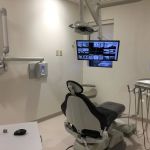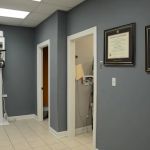
How to Find a Dentist Who Understands Dental Fear: Top Tips and Solutions
- Understanding Dental Fear and Anxiety
- Why You Need a Dentist Who Understands Dental Anxiety
- Traits of a Dentist Who Specializes in Dental Fear
- How to Find the Right Dentist for Dental Fear
- Effective Ways to Overcome Dental Fear
- Real-Life Stories: Overcoming Dental Fear
- Professional Help and Tips for Managing Dental Anxiety
- When to Seek Specialized Dental Care for Anxiety
Understanding Dental Fear and Anxiety
Dental fear is a common issue, with millions of people worldwide feeling anxiety or outright fear when it comes to visiting the dentist. This fear can stem from past traumatic experiences, a fear of pain, or the sound and feel of dental instruments. For many, dental visits are associated with discomfort, making it hard to maintain regular dental care.
It’s important to recognize that dental fear is not something to be ashamed of—many people experience it. Understanding the root causes of your fear is a step toward finding a solution and receiving the care you need. Whether it’s mild anxiety or a full-blown panic attack, the right dentist can help you manage or even eliminate your fear over time.
Why You Need a Dentist Who Understands Dental Anxiety
Finding a dentist who understands dental fear is crucial for your long-term oral health. Anxiety can prevent you from seeking necessary care, leading to worsening dental issues. An anxiety-friendly dentist creates an environment that reduces stress and helps patients feel comfortable throughout their visit.
People who suffer from dental fear may delay important treatments, such as cleanings, fillings, or checkups, because they are afraid of the experience. Over time, this can lead to more serious dental issues, including tooth decay, gum disease, or even the need for more invasive procedures.
A dentist who specializes in dental fear knows how to take a compassionate and patient-centered approach, offering comfort and assurance. This reduces anxiety and makes dental care more accessible for those who need it most.
Traits of a Dentist Who Specializes in Dental Fear
Not all dentists are equipped to handle patients with dental anxiety. If you are looking for a dentist who can ease your fear, here are some important traits to look for:
1. Compassionate and Understanding
The best dentists for nervous patients are empathetic. They understand that dental anxiety is real and take the time to listen to your concerns without judgment. A compassionate dentist will always make sure to explain procedures clearly, step by step, so you feel in control and confident.
2. Patience and Flexibility
Dentists who specialize in treating anxious patients are patient and flexible with appointment scheduling, pace, and treatment options. They will allow you to take breaks during procedures and adjust the treatment plan if needed to ensure your comfort.
3. Use of Sedation Dentistry
Some anxiety-friendly dentists offer sedation options such as nitrous oxide (laughing gas), oral sedatives, or even IV sedation to help patients relax during their appointment. These options can make a significant difference for people who experience severe dental anxiety.
4. Relaxing and Comfortable Office Environment
A dentist's office should feel calming and soothing. Many anxiety-friendly practices feature soft lighting, comfortable seating, calming music, and even blankets or pillows to make the space feel like a safe haven.
How to Find the Right Dentist for Dental Fear
Finding the right dentist to help with your dental fear doesn’t have to be difficult. Here are a few tips to make the search easier:
1. Research Online Reviews
Start by reading online reviews and testimonials from other patients. Websites like Google, Yelp, and Healthgrades often feature feedback from individuals who have had positive experiences with dentists specializing in anxiety and fear. Look for reviews that mention the dentist’s ability to make patients feel comfortable and at ease.
2. Ask for Recommendations
Asking friends, family, or even your primary care doctor for recommendations is another great way to find a dentist who is skilled at working with anxious patients. Personal recommendations often carry more weight because they come from people you trust.
3. Schedule a Consultation
Once you’ve found a potential dentist, schedule a consultation to meet them in person. Use this opportunity to discuss your concerns and gauge their approach to patient care. A good dentist will take the time to address your questions and reassure you about the treatment process.
Effective Ways to Overcome Dental Fear
Overcoming dental fear is possible with the right mindset and support. Here are some effective ways to manage and reduce anxiety during dental visits:
1. Deep Breathing and Relaxation Techniques
Practicing deep breathing before and during your appointment can help calm your nerves. Slow, deep breaths trigger the body's relaxation response, reducing the physical symptoms of anxiety, such as a racing heart or sweaty palms.
2. Bring a Friend or Family Member
Having someone you trust with you during your appointment can provide emotional support. Many anxiety-friendly dentists allow patients to bring a friend or family member to their visits to ease feelings of nervousness.
3. Use Distractions
Bring headphones and listen to calming music or an audiobook during your procedure. Distractions help take your mind off the treatment and reduce feelings of fear.
Real-Life Stories: Overcoming Dental Fear
Many patients have successfully overcome dental fear with the help of understanding dentists. For example, Maria, a 42-year-old woman, had been avoiding the dentist for years due to her severe fear. After finding a dentist who specialized in treating anxious patients, she was able to have her first dental cleaning in over a decade. Through gentle communication and the use of nitrous oxide, Maria felt completely at ease and now regularly visits the dentist for preventive care.
Professional Help and Tips for Managing Dental Anxiety
If your dental anxiety is severe, it may be worth seeking professional help, such as therapy for phobias or relaxation techniques. Cognitive behavioral therapy (CBT) has been shown to be effective in treating dental phobia by helping individuals change their negative thought patterns associated with dental visits.
When to Seek Specialized Dental Care for Anxiety
If your dental anxiety is preventing you from seeking necessary care, it’s important to seek specialized help. Dentists who specialize in treating fearful patients, combined with relaxation techniques and possible sedation options, can make a significant difference in your overall dental health.







 Dr. David Newkirk - Cosmetic and General Dentistry5.0 (31 review)
Dr. David Newkirk - Cosmetic and General Dentistry5.0 (31 review) Smile Works Dentistry & Orthodontics in Lake Forest4.0 (35 review)
Smile Works Dentistry & Orthodontics in Lake Forest4.0 (35 review) Maple Brook Dental of MN4.0 (532 review)
Maple Brook Dental of MN4.0 (532 review) Frankfort Avenue Family Dental4.0 (405 review)
Frankfort Avenue Family Dental4.0 (405 review) Tender Smiles 4 Kids4.0 (450 review)
Tender Smiles 4 Kids4.0 (450 review) Bryn Mawr Dental Associates4.0 (493 review)
Bryn Mawr Dental Associates4.0 (493 review) The Importance of Oral Health Education During Pregnancy for a Healthy Pregnancy
The Importance of Oral Health Education During Pregnancy for a Healthy Pregnancy Best Tips for Brushing Your Teeth Properly for Healthy Gums: Essential Techniques for Oral Health
Best Tips for Brushing Your Teeth Properly for Healthy Gums: Essential Techniques for Oral Health Why Skipping Dental Checkups Can Lead to Bigger Oral Health Problems
Why Skipping Dental Checkups Can Lead to Bigger Oral Health Problems Advantages of Porcelain Dental Restorations
Advantages of Porcelain Dental Restorations How Can Diabetes Cause Tooth and Gum Problems? Preventing and Managing Oral Health Issues
How Can Diabetes Cause Tooth and Gum Problems? Preventing and Managing Oral Health Issues Healthy Habits for Promoting Good Oral Health and Hygiene: Tips for a Healthy Smile
Healthy Habits for Promoting Good Oral Health and Hygiene: Tips for a Healthy Smile